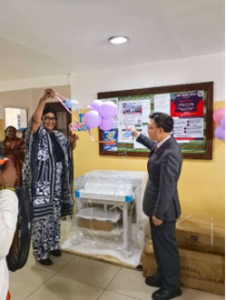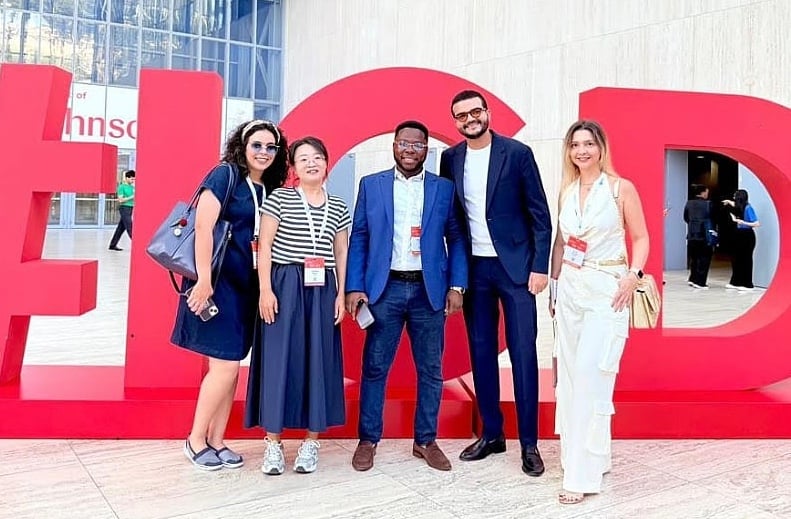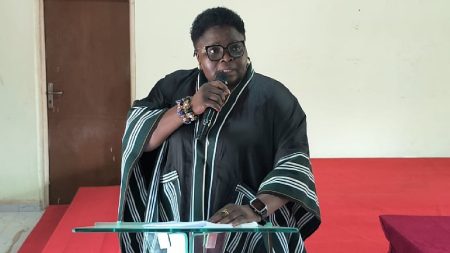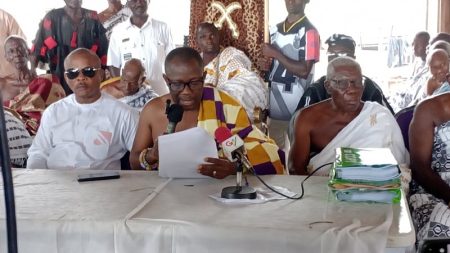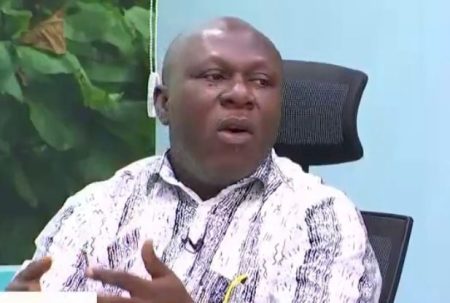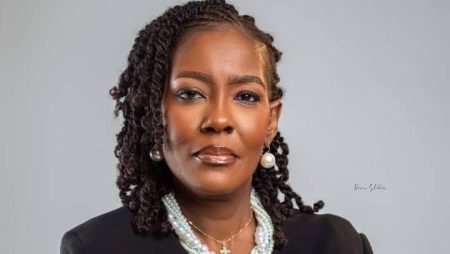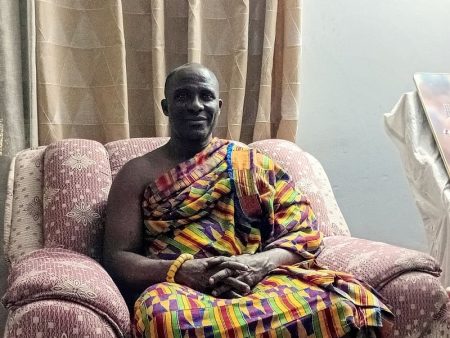Dr. Kofi Ansah Brifo, a Consultant Dermatologist from Ghana, delivered a compelling address at the 14th International Congress of Dermatology (ICD 2025) in Rome, highlighting the significant challenges and aspirations of dermatological care in his nation. His presentation, “The Scope of Dermatology in Ghana,” provided a stark reality check for the global dermatology community, exposing the severe shortage of specialists and resources, coupled with the widespread neglect of skin health, particularly in rural and underserved communities. He emphasized the urgency of addressing these issues, advocating for systemic reforms and increased investment to ensure equitable access to quality dermatological care for all Ghanaians.
Dr. Brifo’s presentation underscored the stark disparity between the number of certified dermatologists and the population they serve. With fewer than 30 dermatologists for a population exceeding 33 million, Ghana faces a critical shortage of specialists, leaving millions without adequate access to essential skin care. This scarcity is particularly acute in rural areas, where limited access to healthcare professionals and diagnostic facilities exacerbates the problem. This deficiency in resources contributes to the underdiagnosis and undertreatment of common skin conditions like eczema, fungal infections, scabies, acne, and chronic ulcers, significantly impacting the quality of life for countless Ghanaians.
Compounding the challenge of limited specialist access is the rise of cosmetic dermatology practices fueled by misinformation and unsafe products. Dr. Brifo shared a poignant anecdote of a four-year-old girl whose skin suffered irreversible damage due to a skin-lightening cream purchased online by her mother. This tragic incident served as a powerful illustration of the devastating consequences of misinformation and the urgent need for public awareness campaigns to promote safe skincare practices. The increasing prevalence of unregulated cosmetic procedures and the use of potentially harmful products pose a significant threat to public health, particularly in a context where access to qualified dermatologists is limited.
In his address and subsequent interviews, Dr. Brifo outlined the multi-faceted crisis facing dermatological care in Ghana. He identified a range of interconnected issues, from the shortage of trained professionals and inadequate infrastructure to the pervasive misuse of skin-lightening products and the lack of funding for public awareness initiatives. He argued that these challenges are not merely medical but also systemic and cultural, requiring a comprehensive, multi-sectoral response involving government agencies, academic institutions, civil society organizations, and the media. A collaborative approach is essential to address the complex interplay of factors that contribute to the current state of dermatological care in Ghana.
Dr. Brifo proposed a series of bold reforms aimed at transforming dermatological care in Ghana. These proposals included expanding local dermatology training programs in collaboration with international institutions, launching nationwide skin health education campaigns to combat misinformation and promote safe practices, decentralizing dermatological services through teledermatology and outreach clinics to reach underserved communities, investing in diagnostic infrastructure such as dermatopathology labs to improve diagnostic capabilities, and establishing mentorship programs and research pipelines to foster leadership and advance the field of dermatology in Ghana. These initiatives, he argued, would not only improve access to care but also build capacity within the country to address the complex challenges facing dermatological health.
Dr. Brifo’s presence at the ICD 2025 was more than a personal achievement; it was a representation of the hopes and struggles of countless Ghanaians seeking access to quality skin care. He emphasized that skin health is a fundamental human right, not a privilege reserved for the few. He conveyed a message of hope and determination, expressing his belief that Ghana possesses the human capital and the will to overcome these challenges. However, he stressed the importance of translating ambition into coordinated action and securing the necessary funding to support the proposed reforms. His participation in the international congress provided a vital platform to amplify the voices of those in need and advocate for meaningful change.
Dr. Brifo’s concluding remarks reiterated the urgent call for investment in dermatological care, education, and expanded access to services across Ghana. He envisioned a future where quality dermatological care is accessible to all, regardless of their location or socioeconomic status. His participation in the ICD 2025 signaled that Ghana’s voice in the global dermatology community is not only being heard but is also actively shaping the conversation, advocating for greater equity and access to essential skin health services. His powerful message resonated with the international audience, highlighting the global interconnectedness of health challenges and the importance of collaborative efforts to improve dermatological care worldwide.




